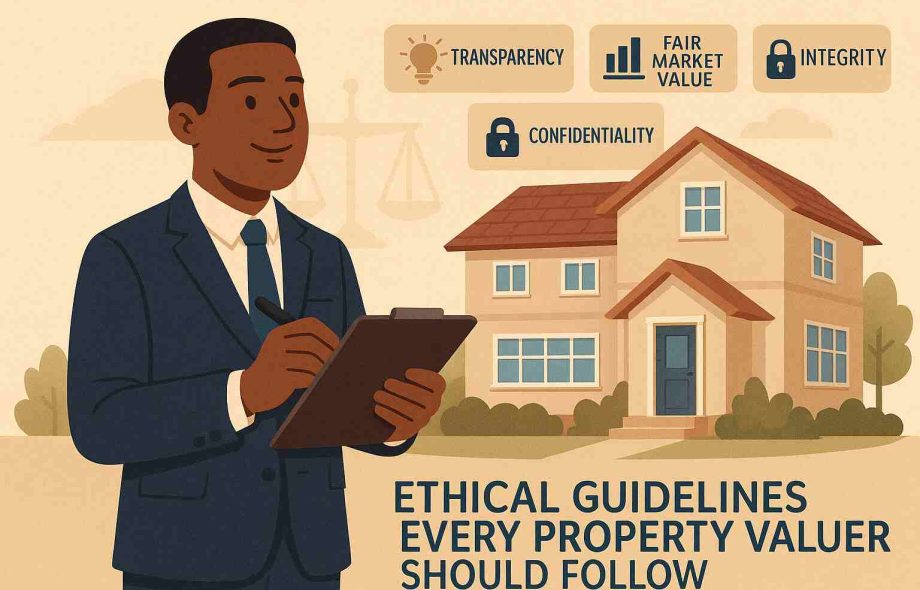A property’s value can shape many financial decisions. When wrong values are given, big losses can be caused. Because of this, strong ethics are always expected.
The role of property valuers in Noida must be handled with care.
But what rules must truly be followed? Which actions protect fairness and trust?
The next ten points will reveal key ethics. The answers may surprise you and shift your thinking.
Honesty Must Always Be Maintained
Every property valuer must stay honest at all times. False details must never be added to reports. A client’s trust can be lost very quickly. Once lost, trust is hard to rebuild again.
The correct value must always be provided. Numbers must not be changed to please others. All information must be based on real facts. Data must be taken from trusted and verified sources.
Confidentiality Should Be Respected
All client details must be kept safe and private. Personal or financial data must not be shared publicly. Without permission, no information should be given to others.
Reports and records must be stored in secure places. Access should be given only to trusted people. Emails and files must be protected from outside threats.
If confidentiality is broken, trust can be lost quickly. Legal action may also be taken against the valuer.
No Conflict of Interest Should Exist
Property valuers must not have personal stakes in deals. Fair judgments can be affected by personal interest or gain. Every valuation must be done without any hidden agenda.
Jobs should be refused when bias may be present. If a conflict exists, it must be clearly shared. Clients must be informed about any possible unfair link.
When conflicts are avoided, trust can be easily built. A clean and fair process is always expected.
Professional Judgement Must Be Used
Property values must be decided using skill and care. Proper methods should be followed during every valuation process. Assumptions must be based on facts, not guesses or feelings.
Every detail should be checked before the report is made. Local market trends must be studied and understood clearly. Mistakes can be avoided when expert judgment is applied.
Poor judgment can lead to wrong and unfair values. Serious harm may be caused to buyers or sellers.
No Outside Influence Should Be Accepted
Valuations must be done without pressure from others. Clients or agents should not control the final value. Decisions must be based on facts, not outside opinions.
If pressure is felt, it should be clearly reported. Any unfair request must be refused without delay. A valuer’s duty is to remain fair and neutral.
When outside influence is accepted, reports become dishonest. Wrong values can harm buyers, sellers, or investors.
Transparency Should Be Practised at All Times
Clear methods must be shown in every valuation report. Sources of information should always be openly shared. No hidden steps should be used during the process.
Clients must be told how the value was decided. If questions are asked, honest answers must be given.
When transparency is followed, trust can be easily built. Misunderstandings and doubts can also be avoided early.
Competence Must Be Maintained Always
Valuation tasks must be done with proper skill and care. Work should be accepted only within known skill areas. Complex jobs must not be taken without full knowledge.
Up-to-date training should be attended when needed. New laws and tools must be learned regularly. Mistakes can be reduced when skills are kept fresh.
If competence is lacking, wrong values may be given. Clients may suffer from poor and unfair reports.
Regular Updates Should Be Done
Laws and market trends must be studied frequently by architectural service provider in wave city. New rules should be learned as soon as possible. Old knowledge must be replaced with current and correct facts.
Training sessions should be attended by all property valuers. Updated tools and methods must also be understood well. Better results are given when current knowledge is used.
If updates are ignored, mistakes can happen quickly. Wrong values may be shared with clients or banks.
FAQS
Why is honesty important for property valuers?
Because false or biased valuations can harm clients and ruin trust.
What does confidentiality mean in property valuation?
It means keeping all client data private and secure from unauthorized access.
What is a conflict of interest in valuation?
When a valuer has a personal stake or bias that may affect fair judgment.
Why is professional judgment necessary?
To ensure valuations are accurate, fact-based, and reflect market realities.
Can a valuer accept influence from clients?
No. Valuers must remain independent and refuse any pressure.
What does transparency in valuation involve?
Clearly showing how the value was determined and sharing all sources.
How do valuers maintain competence?
By working within their expertise and updating their skills regularly.
Why are regular updates important?
Because laws and market conditions change, affecting property values.
What happens if ethics are ignored in valuation?
Clients can suffer losses, and valuers may face legal or professional penalties.
How does ethical behavior benefit valuers?
It builds trust, protects reputation, and ensures long-term career success.
 :
https://in.pinterest.com/raghavagroupofficial/
:
https://in.pinterest.com/raghavagroupofficial/












